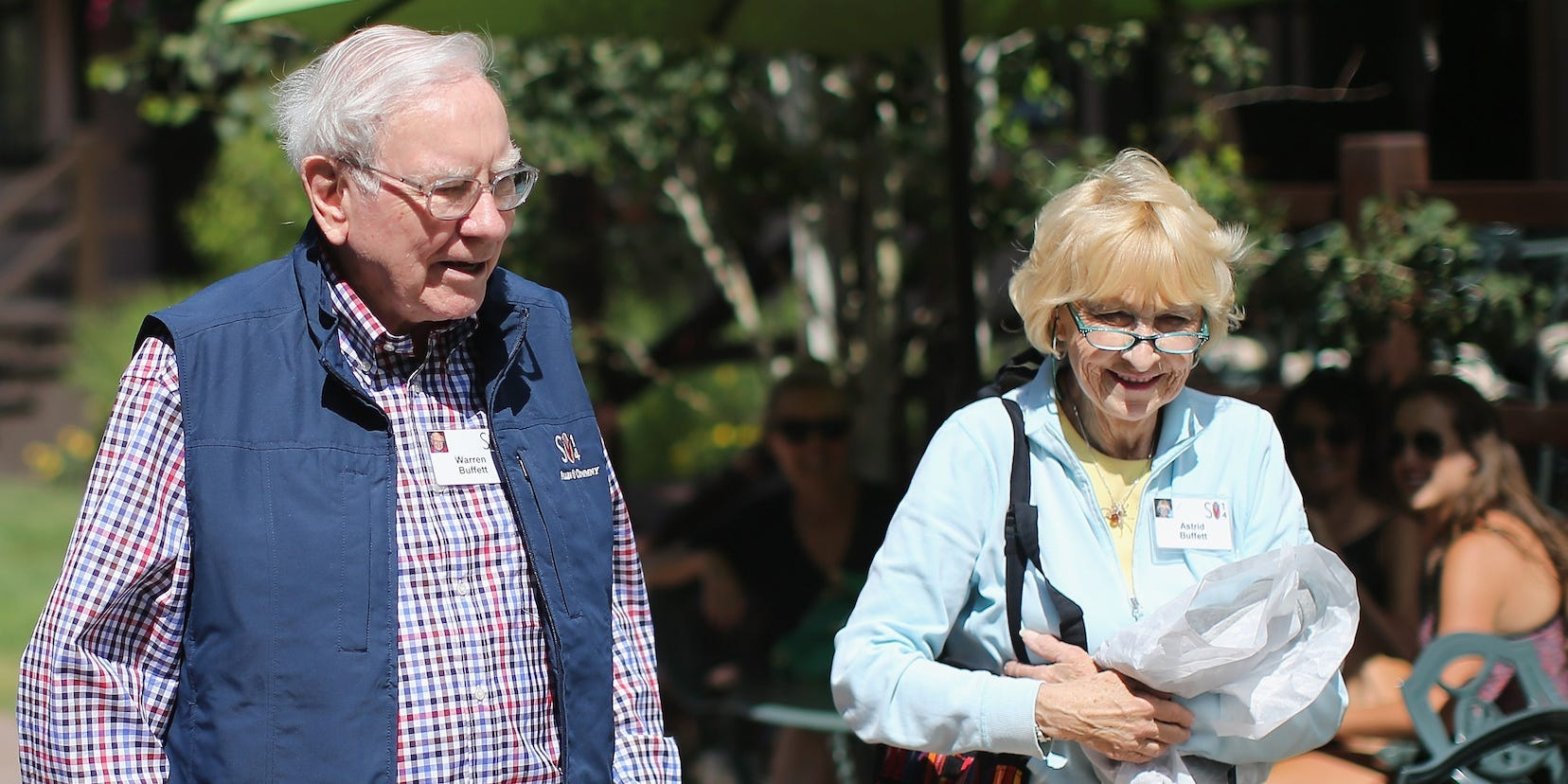Warren Buffett’s wife reportedly balked at the $4 cost of a coffee at Sun Valley. Astrid Menks’ reaction aligns with her husband’s approach to life, investing, and dealmaking. Buffett lives simply, seeks value as an investor, and strikes a hard bargain when he cuts deals. Loading Something is loading.
Thanks for signing up!
Access your favorite topics in a personalized feed while you’re on the go.
Warren Buffett detests high inflation, and it appears the billionaire’s wife does too. Astrid Menks balked at paying $4 for a cup of coffee at Sun Valley this week, noting she “could get a pound of coffee” for that price in other places, the New York Post reported on Thursday.
Her reaction won’t surprise close followers of Buffett, or shareholders of his Berkshire Hathaway conglomerate. The 92-year-old investor ranks among the world’s richest people thanks to his $114 billion of Berkshire stock, but he lives a famously frugal lifestyle, and has made prudent spending a cornerstone of his investing and dealmaking style.
Indeed, Buffett still lives in the same house in Omaha, Nebraska that he purchased for $31,500 in 1958. He stops by McDonald’s to grab breakfast on his way to work each morning. He’s also earned a modest annual salary of $100,000 for more than 40 years.
The Berkshire CEO even dubbed his private jet “The Indefensible” because he felt so guilty about the indulgence. Buffett’s business partner and Berkshire’s vice-chairman, Charlie Munger, might be even more ascetic. Buffett once joked Munger’s idea of traveling in style was an air-conditioned bus, and he only convinced him to buy a membership from Berkshire-owned NetJets by installing a coach seat in his plane.
Munger is 99 now, but in his younger years he flew commercial from Los Angeles to Omaha each year to attend Berkshire’s annual shareholder meeting — and his shareholders cheered the fact he was saving them money.
“It was full of rich stockholders,” Munger recalled during this year’s meeting. “And they would clap when I came into the coach section. I really liked that.”
Buffett and Munger run Berkshire in similar fashion. Both men are value investors who specialize in buying stocks and acquiring businesses that are priced below their worth. They’re also very protective of the company’s money, and deeply averse to wasting it.
When Buffett deploys company cash, he maximizes his upside and minimizes his risk of losing money by carefully structuring his deals, negotiating rock-bottom prices or sky-high interest rates, or securing boons like preferred stock and warrants.
For example, when Berkshire bought insurer Alleghany last year, Buffett refused to budge on price, and subtracted from his offer the $27 million fee that Alleghany paid Goldman Sachs to advise on the transaction.
Given Buffett’s thrifty nature, and the fact he’s made financial discipline the bedrock of Berkshire’s culture, it’s no wonder his spouse bristles at overpaying for her morning joe.
